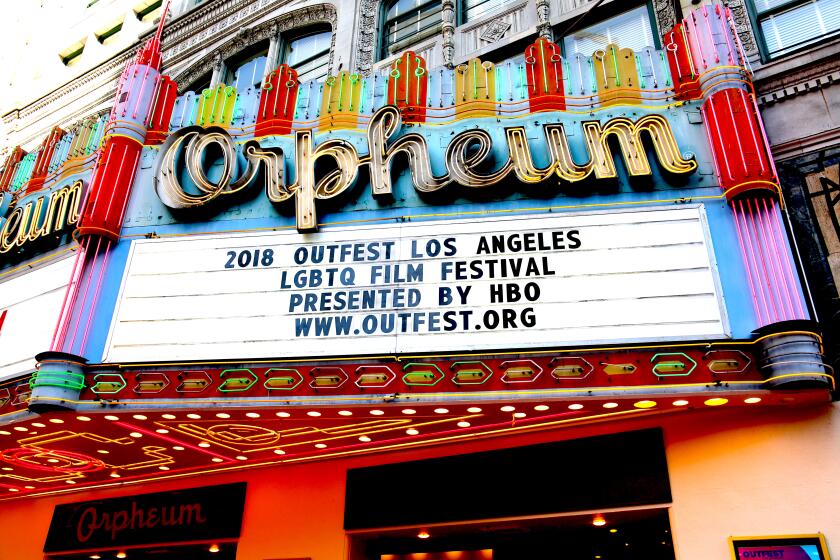Justin Chang’s Cannes Film Festival diary 2019
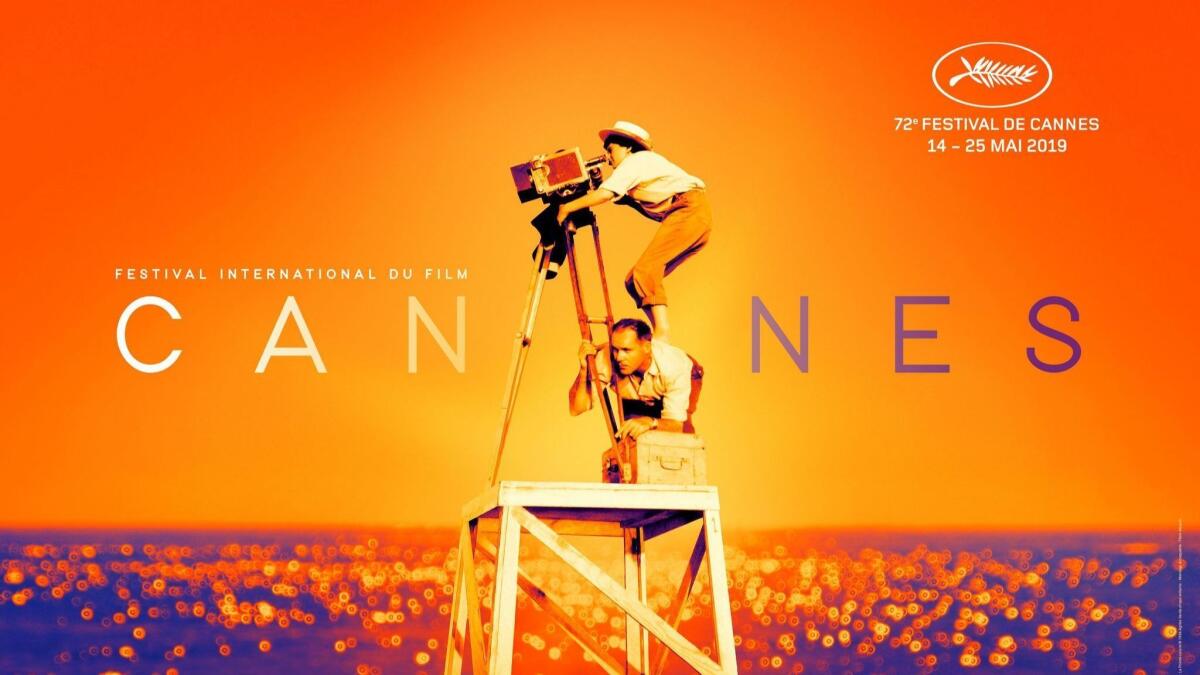
The 72nd Cannes Film Festival is under way (May 14-25), and along with fellow L.A. Times film critic Kenneth Turan and writer Amy Kaufman, critic Justin Chang is on the ground, taking in the scene and seeing as many movies as possible in between frequent steak tartare breaks. Early titles gaining buzz this year include the Elton John musical bio-pic “Rocketman,” Pedro Almodóvar’s semi-autobiographical “Pain & Glory” and Quentin Tarantino’s much-anticipated “Once Upon a Time … in Hollywood.” Chang gives us an up-close view of the most significant event in world cinema, a mecca for movie lovers.
One thing the Cannes Film Festival jury got right: Bong Joon-ho's 'Parasite' victory
Bong Joon-ho’s “Parasite” is the best movie to win the Palme d’Or at Cannes since — well, last year’s winner, Hirokazu Kore-eda’s “Shoplifters,” a movie that it resembles in some very strange, funny and surely unintended ways.
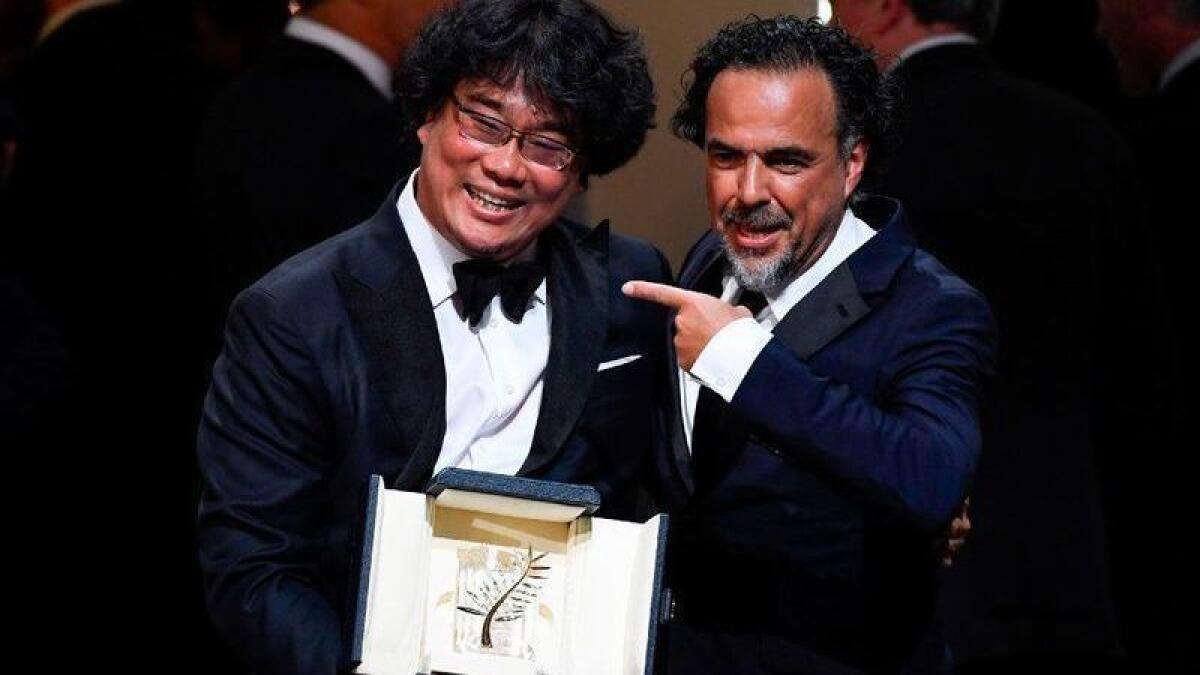
Like “Shoplifters,” “Parasite” is a moving and suspenseful portrait of an impoverished family that resorts to some desperate, dishonest survival tactics. Unlike “Shoplifters,” it’s an insidiously creepy entertainment that swerves violently (but oh so beautifully) between tones and genres, building up a head of darkly comic steam before suddenly giving way to full-tilt horror and devastation. I’m deliberately writing around the plot, which is ingenious and twisted and worth discovering on your own when it makes its way into theaters worldwide.
“Shoplifters” was the sixth Japanese movie to win the top prize at Cannes; “Parasite” is the first South Korean movie to do so. All hail the competition jury, led by president Alejandro G. Iñárritu, for rectifying that ridiculous oversight. The Bong d’Or, as it must henceforth be known, will mean a great deal to an industry that routinely cranks out some of the best genre cinema and art cinema around — or, in the case of “Parasite,” a superb hybrid of the two.
Abdellatif Kechiche’s ‘Mektoub, My Love: Intermezzo’ is the disaster of the Cannes Film Festival
The first words in “Mektoub, My Love: Intermezzo,” the longest and by no small margin the worst movie I’ve seen at this year’s Cannes Film Festival, are “Look at me.”
The words are spoken by a young man named Amin (Shaïn Boumédine) to the very beautiful, very naked woman he’s photographing on a beach in the South of France. After a few minutes spent focusing on her face, the movie camera drops down to take in a fuller view of her body, lingering appreciatively on her bare buttocks.
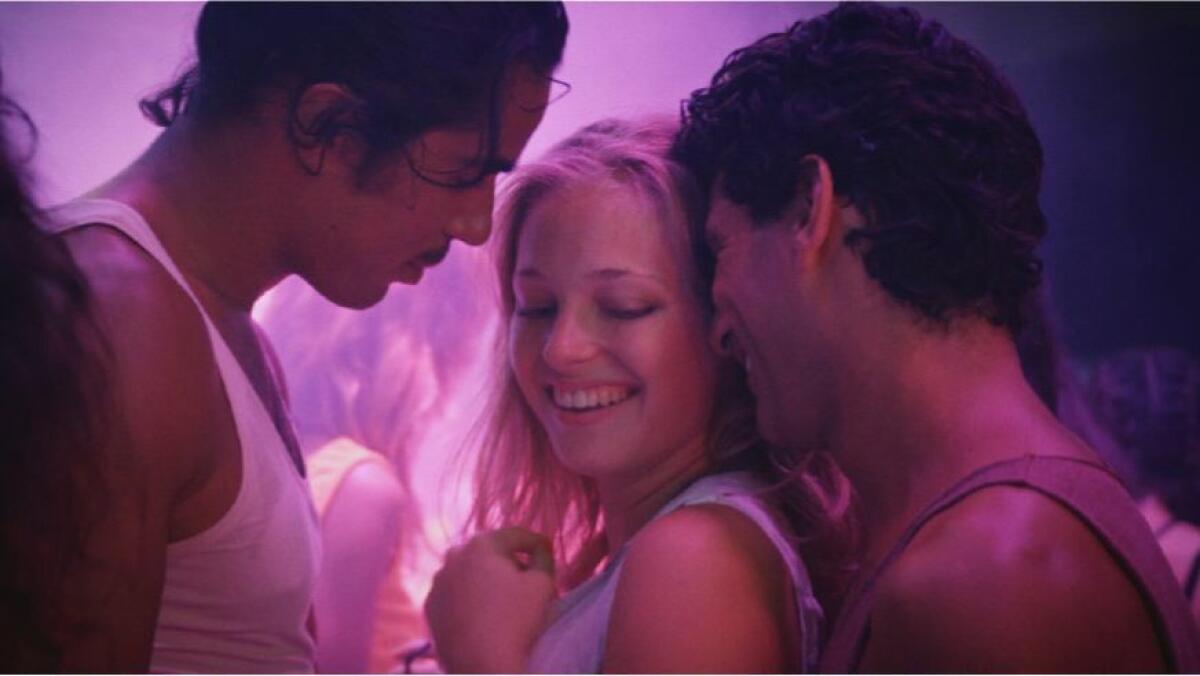
Hers will not be the only posterior subjected to this level of scrutiny. You might say an entire ensemble of female rear ends play the joint protagonists of this three-and-a-half-hour movie, the work of a cinematic maximalist — nay, a gluteus maximalist — operating at the literally butt-numbing nadir of his powers.
In another film you might appreciate a moment like this as an instance of honest, unabashed eroticism, though the movie would have to work up some actual tenderness for that, some expression of feeling beyond a juvenile leer. It’s more likely that you would dismiss it as an instance of everyday prurience on the director’s part, a voyeuristic lapse en route to something hopefully more interesting.
Quentin Tarantino shocks Cannes again with epic ‘Once Upon a Time ... in Hollywood’
The day before the Cannes premiere of “Once Upon a Time … in Hollywood,” his hotly anticipated movie set in Los Angeles during the tumultuous events of 1969, Quentin Tarantino published an open letter online. He addressed it to audiences at the festival, opening with the words “I love Cinema,” which may be the most redundant thing this movie-mad auteur has ever written (and given his endless, self-admiring flurries of dialogue, that is saying something). The letter then implored us not to reveal “anything that would prevent later audiences from experiencing the film in the same way.”
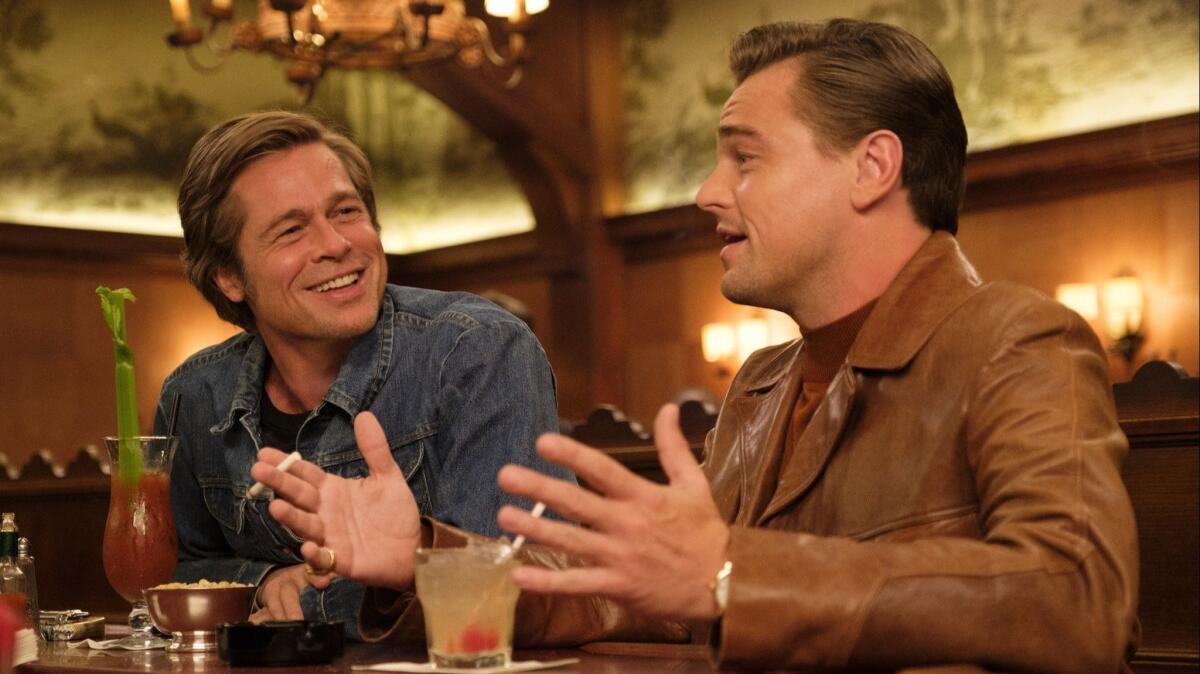
A version of this entreaty was repeated from the stage by a festival representative shortly before the picture screened Tuesday for members of the press, some of whom booed and snorted in response. I didn’t join in. Even as someone who believes that excessive spoiler sensitivity is a sign of an entitled, infantile approach to moviegoing, it’s easy to understand Tarantino’s anxiety, especially after a leaked script nearly led him to shelve “The Hateful Eight.” (Many, of course, still wish that he had.)
Twenty-five years after “Pulp Fiction” won the Palme d’Or at this festival, Tarantino’s movies may no longer have quite the same audacity or revelatory power, but the ability to shock — and, if you’re lucky, to make you think — remains an important tool in his kit. This turns out to be the case even when he’s dealing with real-life subjects such as Sharon Tate, Roman Polanski and members of the Charles Manson cult, whose well-documented stories would, by now, seem beyond spoiling.
Terrence Malick’s ‘A Hidden Life’ is a return to form
In the eight years since Terrence Malick won the Palme d’Or at Cannes for “The Tree of Life,” his magisterial drama about childhood’s end and the spirit’s awakening, the standard critical line is that he has become an artist lost in the wilderness, stranded in an artistic limbo of his own making.
His most recent features — “To the Wonder,” “Knight of Cups” and “Song to Song” — are wispy, fragmentary tales of romantic ennui and moral drift, full of visual beauty but absent a comparable sense of transcendence. I admired them more than many of my colleagues did, though it would be disingenuous not to admit that I, too, was left wondering if this great and singular filmmaker would ever give us another movie to love.
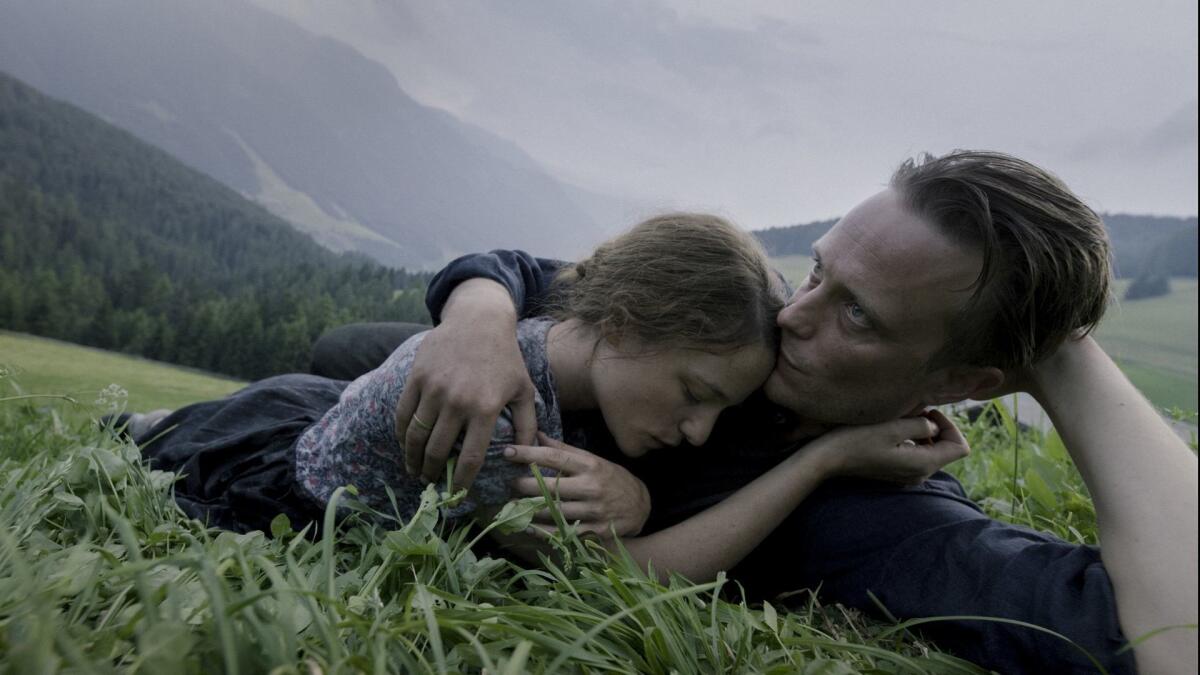
I wonder no more. Sunday marked Malick’s return to Cannes, and it felt like a homecoming in more than one sense. His extraordinarily beautiful and wrenching new movie is called “A Hidden Life,” a title that quotes from “Middlemarch,” though one that could easily be misinterpreted as a reference to this famously press-shy auteur himself. But it also sounds an echo of “The Tree of Life,” which may be more than mere coincidence: If that 2011 film was Malick’s most personal and autobiographical work, then this one feels like a decisive return to roots. It’s at once a linear, almost classically structured drama and an exploratory, intensely romantic work of art.
“A Hidden Life” tells the story of Franz Jägerstätter, a peasant farmer from the Austrian village of St. Radegund who was imprisoned and executed in 1943 for refusing to fight for the Nazis. It’s the writer-director’s second World War II picture, after “The Thin Red Line,” except that here not a single shot is fired. The focus is entirely on Jägerstätter and his family, his growing discontent as Austria falls into Adolf Hitler’s grip and his heroic, ultimately fatal decision to become a conscientious objector
Pedro Almodóvar’s ‘Pain and Glory’ hands the Cannes competition its first triumph
The final image of Pedro Almodóvar’s “Pain and Glory” is such a deftly planted masterstroke, such an ingenious and intuitive little meta-miracle, that you may wonder why you didn’t see it coming.
Then again, maybe you will see it coming. It’s the kind of twist that awaits you at the end of a particularly well-plotted mystery: a surprise that feels inevitable in retrospect. And it’s entirely of a piece with the gamesmanship that has run through Almodóvar’s four-decade-plus career, his elegant way of blurring the lines between truth and artifice, cinema and reality — something he admittedly hasn’t done with this much bravado or quiet grace in quite some time.
“Pain and Glory,” Almodóvar’s 21st feature and his sixth picture to screen in competition at the Festival de Cannes, is his dramatic self-portrait — a work of “auto-fiction,” to use a term favored by an aging gay director named Salvador Mallo (a magnificent Antonio Banderas), though “meta-fiction” would also apply. Salvador, sporting a slightly more disciplined version of Almodóvar’s wild crown of hair, lives alone in Madrid, where he hasn’t made a film in many years, owing partly to a litany of health problems that he rattles off at one point with some helpful anatomical diagrams.
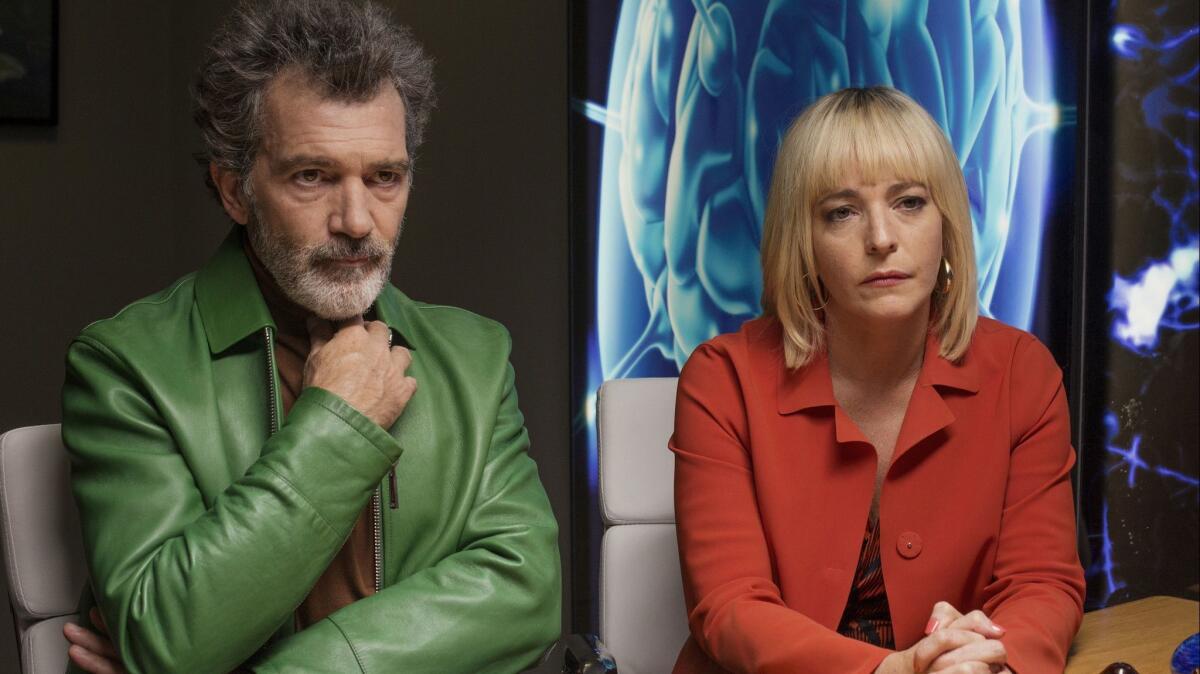
Review: ‘Rocketman’ is an affecting, sprawling musical about the life of Elton John

There are a few surprises tucked in amid the sweet sounds and bright, kaleidoscopic visuals of “Rocketman,” though the way it ends is not one of them. It plays out its final moments, as all biopics these days apparently must, over a montage of photos of its real-life subject. Still, because that subject is Elton John, this conventional postscript has its bonus pleasures, and not just because the images we see are unusually colorful and extravagant to behold.
The sight of John at some of his most memorable concert performances, many of which are re-created in the movie, will probably only burnish your admiration for Taron Egerton, the game and gifted 29-year-old actor who plays him. You are also likely to come away satisfied that the English director Dexter Fletcher and his collaborators (including costume designer Julian Day and production designer Marcus Rowland) have re-created those moments with meticulous accuracy and minimal exaggeration, down to every last sequin and pair of specs.
Of course, for the millions of fans who have made Elton Hercules John one of the most popular entertainers of all time, the side-by-side visual comparisons may well be unnecessary. They may have eternally fresh memories of the rainbow-hued feathers John wore on “The Muppet Show,” the sparkly baseball uniform from his sold-out shows at Dodger Stadium or his star-making, gravity-defying L.A. debut at the Troubadour.
‘Bacurau,’ ‘Les Misérables’ and ‘Deerskin’ shake up Cannes with visions of violence
“Do you want to live or die?”
The question — and the answer — land with brutal force in “Bacurau,” the strange and harrowing Brazilian feature that shook up the Cannes Film Festival on Wednesday. It may sound like a threat, but it isn’t presented as one; the man asking the question is doing so with the utmost sincerity. In a futuristic social order where the slaughter of human beings has become a transactional, recreational activity, death very well may be preferable to life.
“Bacurau” takes its name from a small village in northeastern Brazil that comes under enormous threat from forces both within and without. The time is a few years from now, and this (fictional) backwater is being strategically erased from history. The residents are embroiled in a battle over water access with a corrupt local politician. Bacurau no longer appears on GPS maps, and cellular communications are nonexistent. And that’s before a bunch of “Most Dangerous Game”-style thrill seekers show up, looking to get their kicks by racking a very high body count and pushing the movie toward a spectacular whirlwind of violence.
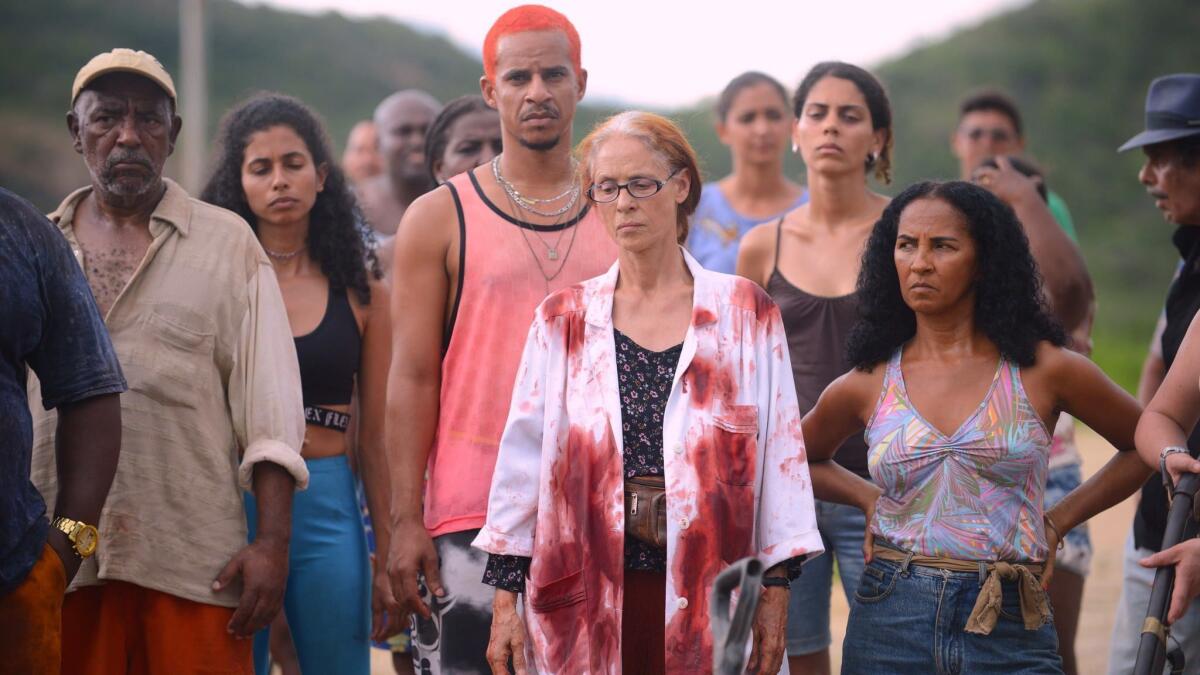
Jim Jarmusch's 'The Dead Don't Die' starts Cannes off on an apocalyptic note
The 72nd Festival de Cannes began Tuesday with a vision of the end.
In “The Dead Don’t Die,” Jim Jarmusch’s bleak, bone-dry shrug of a horror-comedy, Adam Driver, Bill Murray and Chloë Sevigny play small-town police officers fending off a zombie apocalypse. There’s little ambiguity about what caused the epidemic, and even less about what it represents. A culture of moral idiocy and capitalist greed, signaled by a huge uptick in “polar fracking,” has fatally shifted the Earth’s rotational pattern. Now the sun takes forever to set, radio signals have gone haywire and the dead are rising up from their graves to feast on the flesh of the living.
There’s something to be said for kicking off the world’s most prestigious film festival with a bloody aperitif, especially one served up by one of the festival’s favorite sons. With “The Dead Don’t Die,” Jarmusch has pioneered his own sub-subgenre: the undeadpan comedy. His dialogue scenes are as drawn-out and poker-faced as ever. When two diner employees are brutally disemboweled — the movie spares us very little — the people of Centerville (population 738) respond with more confusion than panic. The movie milks their comic bewilderment for all it’s worth, which isn’t terribly much.
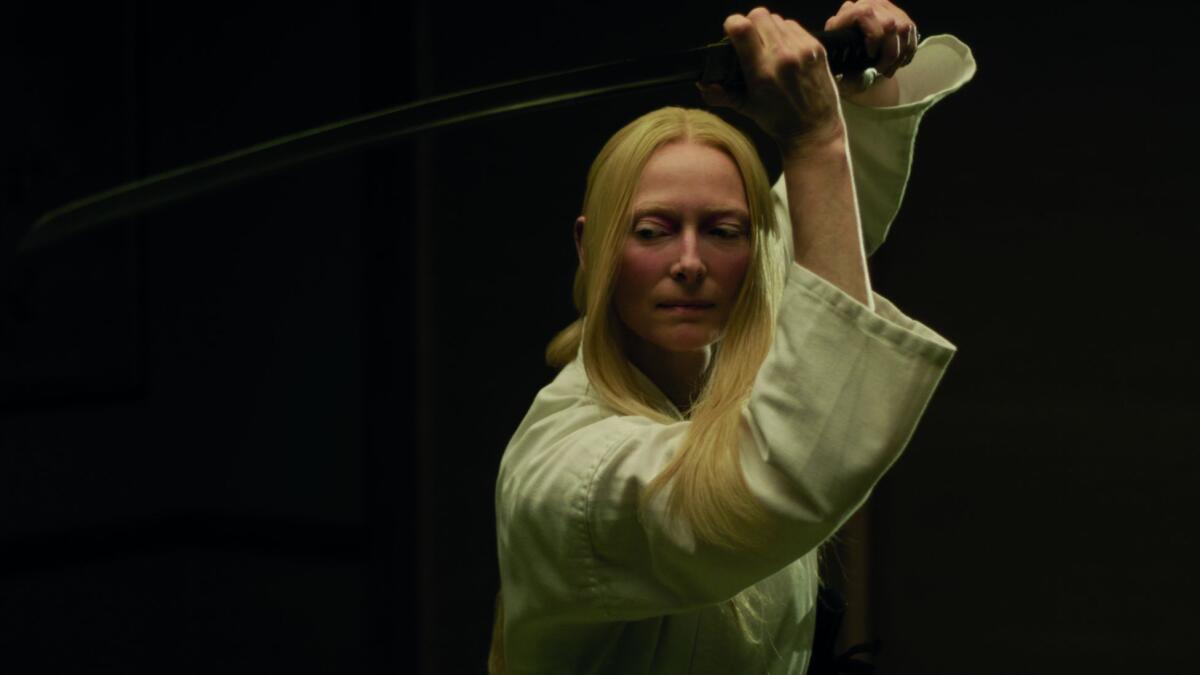
Only good movies
Get the Indie Focus newsletter, Mark Olsen's weekly guide to the world of cinema.
You may occasionally receive promotional content from the Los Angeles Times.
